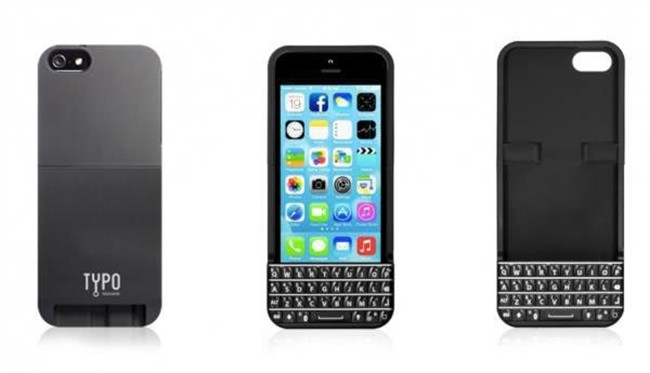NEW YORK – Smartphone maker BlackBerry (TSX:BB) has revived a legal battle against a startup co-founded by Ryan Seacrest, saying its iPhone keyboard rips off the design from BlackBerry phones’ physical keyboards.

Waterloo, Ont.,-based BlackBerry Ltd. won a preliminary injunction last year against Typo Products’ first keyboard. But Typo released a second-generation keyboard in December. Called the Typo2, it is a case that gives iPhones a physical keyboard below the touch screens.
READ MORE: Typo ordered to pay BlackBerry for violating an injunction
In a federal lawsuit filed Monday in San Francisco, BlackBerry said Typo is still infringing on BlackBerry’s patents, including those related to design, backlighting and typing automation technologies.
Among the claims, BlackBerry said design elements copied include having at least two of the three rows of keys extend to the side edges, and having little vertical space between the rows of keys.
“These elements … are distinctive and serve to identify BlackBerry as the source of BlackBerry’s products,” the company said in its lawsuit.
READ MORE: Typo says BlackBerry claims unfounded
Seacrest started Typo with entrepreneur Laurence Hallier in 2013. Hallier was named as a defendant, but Seacrest was not. The company declined to comment on the lawsuit.
Typo2 is available for the iPhone 5 and 5s for US$79 and the iPhone 6 for US$99.
Physical keyboards remain one of BlackBerry’s signature features, even as the phone’s popularity has waned since Apple released its first iPhone in 2007.
- Invasive strep: ‘Don’t wait’ to seek care, N.S. woman warns on long road to recovery
- Ontario First Nation declares state of emergency amid skyrocketing benzene levels
- Do Canadians have an appetite for electric vehicles? Experts are divided
- Nearly 200 fossil fuel, chemical lobbyists to join plastic treaty talks in Ottawa



Comments